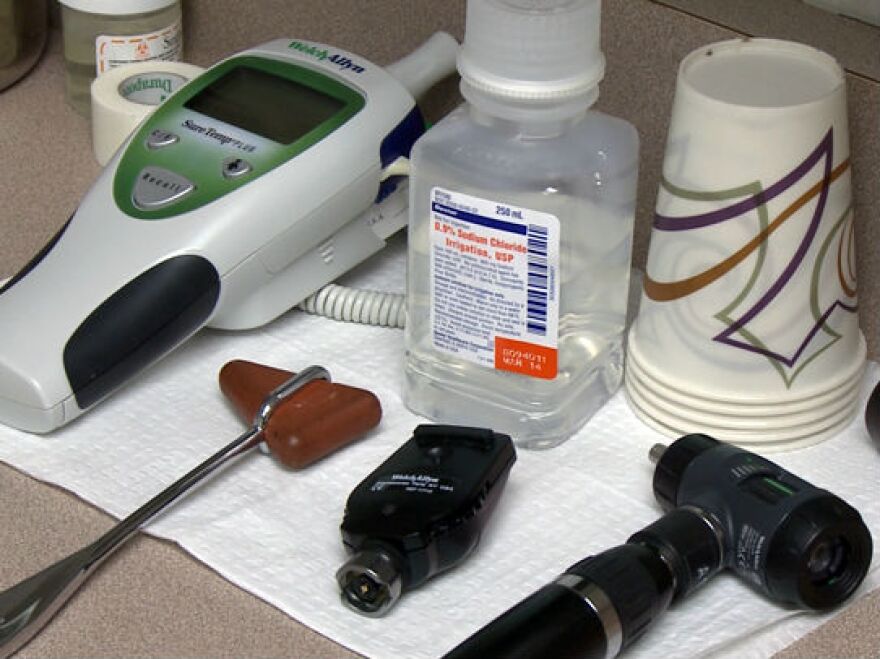Indiana Republicans opposed the passage and implementation of the Affordable Care Act, including their refusal to create a state-run insurance marketplace. Now, an impending Supreme Court decision could leave thousands of Hoosiers without subsidies to help pay for that health care. And partisan differences are once again shaping the debate on how to respond if the state loses those subsidies.
When IU School of Social Work Professor Heather McCabe found out Indiana would not create a state-run exchange under the Affordable Care Act, she was surprised.
“We like home rule here,” McCabe said. “We like to have governance done at the local level to the extent possible and in this case we’ve decided to let the federal government run our exchange rather than have Indiana be in charge of it and the state of Indiana being the ones calling the shots.”
But Indiana wasn’t unique in its choice to rely on the federal government’s Healthcare.gov for an insurance marketplace. Thirty-three other states made the same decision. Now, health care costs are in jeopardy in those states because of a case before the Supreme Court.
The court is reviewing four words in the 900-page Affordable Care Act law that say premium tax subsidies – which significantly lower the cost of insurance – are available only in exchanges that are “established by the state.” The law’s challengers argue the government can therefore only offer the subsidies in the 14 states and District of Columbia that created their own exchange. But the Obama administration says the language was a drafting error.
If the subsidies are deemed unconstitutional, more than 159,000 Hoosiers would lose that assistance. McCabe says that amounts to an average of $320 per person.
“If they would lose that – their premiums would go up 271 percent,” McCabe said. “So, for many people, that’s going to make purchasing insurance unaffordable which was the purpose of the subsidies.”
The Obama administration recently approved contingency plans in Delaware, Pennsylvania and Arkansas that would create state-based exchanges if the subsidies are struck down. Governor Mike Pence has not publicly revealed any plans to address the issue if the subsidies are taken away. Spokesperson Kara Brooks says the Pence administration will comment after the Supreme Court issues its ruling and the state can evaluate the opinion’s impact.
But Portage Sen. Karen Tallian, who is a candidate in the Democratic primary for governor, says Indiana shouldn’t need to wait for the ruling.
“There’s a real simple fix, a really simple fix,” Tallian said. “We start a state exchange.”
Tallian authored bills in recent sessions of the Indiana General Assembly that would have created a state exchange, but neither advanced out of committee. Crawfordsville Republican Rep. Tim Brown says that’s because the cost of administering the program is too expensive.
“From the state level, there’s no way we can bankrupt our state and take away from education to pay for something that’s mandated by the federal government,” Brown said.
The nonpartisan Legislative Services Agency estimates the state would have to spend an initial $138 million to set up the exchange with a 39 million price tag to run it each year after. Brown says because the Affordable Care Act is a federal law, it needs a federal solution.
A proposed bill in the Senate co-sponsored by U.S. Sen. Republican Dan Coats would extend subsidies for all states until 2017, but Democrats criticize it because it would eliminate core tenets of the Affordable Care Act, such as the individual and employer mandates.
Tallian says Congress is playing political games and waiting at home for a federal solution is irresponsible.
“For them to play politics with 150-160,000 lives is just wrong,” Tallian said.
Tallian plans to call for a special session of the legislature if the subsidies are struck down to propose another state-exchange bill. Mike Downs Center for Indiana Politics director Andrew Downs notes that could help boost Tallian’s profile in the three-way Democratic primary for governor. As for Republicans, Downs says the loss of subsidies could hurt the party in 2016.
“This will be another way that you might see people who are challenging Pence and members of the General Assembly to bring this issue up in an attempt to knock off incumbents,” Downs said.
Still, Downs says blame can go both ways – the GOP could point fingers at Democrats for supporting the health care law while the left wing chastises Republicans for not expanding health care coverage.







